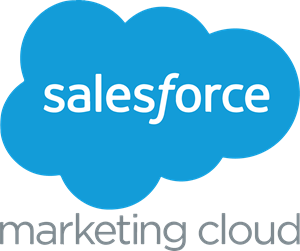Salesforce Marketing Cloud (SFMC) enables you to deliver relevant, personalized journeys across channels and devices, enabling your marketing team to deliver the right messages to your customers at the right time. It includes integrated solutions for customer journey management, email, mobile, social, web personalization, advertising, content creation and management, and data analysis.
Perficient has delivered more than 540 Salesforce engagements, and the majority of those have been built on or integrated with Marketing Cloud. Our tried and true solutions enable our customers to:
- Increase subscribers and engagement
- Create a streamlined customer journey across all digital marketing channels
- Personalize customer experiences
- Gain insights from marketing data and make data-driven decisions
- Increase ad clicks
So You’re Considering Marketing Cloud…

We’ve compiled 10 considerations for those who are just starting out with Marketing Cloud. Review the below, and to learn more about how to make the most of Marketing Cloud, click here.
- Data migration can be extremely complex and should be approached as its own project. Starting with the documentation and plan, ensure that all teams are in agreement to the overall plan (including everything from budget to specific data sets that will be migrated). Once the data has been migrated and QA is complete and approved, the Salesforce Marketing Cloud Configuration is a significant next step.
- Ensure you have the primary key (SalesforceID if the instance will be integrated with the Salesforce platform (SFDC).
- If your company plans to integrate with Salesforce Data Cloud, ensure you have a team well-versed in it. After Data Cloud is implemented, the data architecture for the integration with SFMC will need to be well mapped out (ensure the proper data is synced with either SFMC or other systems). Please note, Data Cloud currently only supports Marketing Cloud Enterprise 2.0 accounts.
- Ensure you have the right team (internal and/or agency) that can get SFMC, along with any integrations, up and running properly.
- Starting with a new email service is no small task, and SFMC requires a full implementation and ramp-up plan for a newly dedicated IP Warming.
- Explore the proposed contract thoroughly.
- Ensure there will be the correct amount of super messages.
- How many SAPs for how many business units/expected deployment?
- Private domains?
- How many contacts were purchased vs. volume?
- Support level?
- Does the organization need a sandbox (do you know what that looks like for SFMC?)
- Or is there a need to set up a sandbox folder system with limited access for devs?
- Optional SFMC Studios or Integrations (a few possibilities are listed below, but there are endless possibilities on the SFMC AppExchange).
- Analytics Studio
- Google Analytics
- Query Studio
- Tableau
- DESelect
- Know SFMC lingo/terms
- Data extension
- Content Detective
- Guided send
- Send classification
- AMPScript
- Content blocks
- SFMC training topics
- SFMC Templates can be utilized as a basis for brand consistency in emails.
- How many will your team need?
- Are there email examples you have seen in your everyday life that you like? If so, what did you enjoy about them? Is there a possibility to use similar ideas for this brand?
- Journey Builder
- Automation Studio
- Contact Builder
- Explore your data strategy.
- Where will your data be stored (CRM or data warehouse)?
- What does your data architecture look like?
- Is it fully approved by all necessary teams (marketing, legal, and compliance)?
- Will data need to be imported from other sources, or will APIs (REST or SOAP) be integrated?
- Will there need to be segmentation queries configured to define ongoing audiences?
- Will there be a custom preference center configured? If so, what will the options for unsubscribing or changing subscription preferences?
- Settings for business units or global unsubscribe options
- SFMC users
- Ensure that all users have clearly defined roles within SFMC and that their user login is associated with their correct role. Also, ensure that they will have the correct permission levels for their job.
- Documentation
- All processes within Salesforce should be well documented. If an employee (either internal or agency) is out of pocket, the documentation should be available to allow another user to read and be aware of the overall goal and how to make any changes should they be necessary.
- Sunsetting the old platform (to allow subscribers to unsubscribe or engage with recent emails).
- Sync data over to ensure any unsubscribes are not missed during this transition (typically 30-60 days)
Perficient’s Marketing Cloud Expertise
Whether you’re looking for enterprise-level mail, marketing automation, digital advertising, data management, or analytics, Marketing Cloud is the answer. As a Salesforce Summit Partner with over 15 years of experience delivering Marketing Cloud solutions for our customers, Perficient is the partner of choice for your marketing needs. Our team of experts have over 100 Marketing Cloud certifications and have successfully delivered marketing solutions across all industries.
